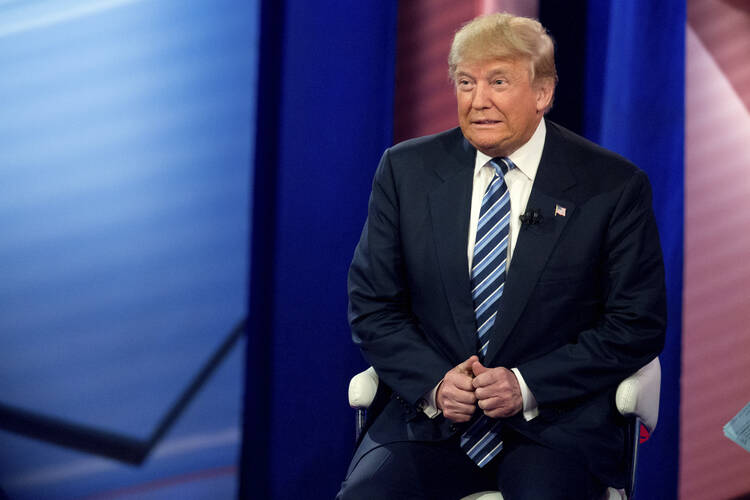In the final days before the South Carolina primary, Donald Trump got an unexpected foil in the person of Pope Francis, who said in response to a question about the Republican front-runner, "A person who thinks only about building walls, wherever they may be, and not building bridges is not Christian, This is not in the Gospel." The pope did not mention Mr. Trump by name, and a Vatican spokesman later emphasized, “In now way was this a personal attack, nor an indication of how to vote.” But it’s difficult not to see Francis’s comments as, at least, a suggestion that Catholic voters do some serious reflection before casting ballots.
Given the low Catholic population in South Carolina, there’s speculation that the pope’s remarks may actually help Mr. Trump there, partly because they add to the candidate’s reputation as someone who can’t be intimidated—his initial response was to say the Vatican will “wish” he’s president when it’s attacked by ISIS—but also because the church is still viewed with some suspicion in a state where most Republican voters are evangelical Protestants.
“The press coverage and reinterpretation of the pope’s comments may have come off to many in the public as a Catholic pope saying a Protestant man running for president isn’t a Christian,” says Mark M. Gray, a senior research associate at the Center for Applied Research in the Apostolate. “This may actually end up helping him among evangelicals who may already be suspicious of the church defining what is Christian and what is not, and interfering in American politics.”
New York magazine’s Ed Kilgore writes that “No Popery” banners and other signs of overt anti-Catholicism are not likely to emerge even in the Deep South following the pope’s comments, but “because the Protestant-Catholic détente in red-state America is a product of shared conservatism on public policy issues, Francis’s ‘heretical’ stance on immigration could create a backlash that's more political and cultural than religious.” That is, Francis may not been seen so much as the leader of the Catholic Church as a “Latin American leftist who's trying to tell Americans how to deal with their own national security.”
Mr. Gray says that there is not a lot of polling data on how Mr. Trump is faring with Catholic voters, but “I don’t think Pope Francis’s comments are likely to change those opinions either way. [The pope’s] comments on planes are not church doctrine that Catholics must now follow or find themselves committing a sin.”
In his 1964 blog, Mr. Gray previously noted that 43 percent of Catholics in a January poll by the Pew Research Center said that Mr. Trump would make an “average” or “better” president—exactly the same percentage as in the overall population. (Marco Rubio scored the highest on this question, with 65 percent among Catholics and 58 percent among all adults; this was the biggest gap between Catholics and non-Catholics of any candidate.)
However, the Pew survey did not distinguish between Hispanic and non-Hispanic Catholics. If Mr. Trump is less popular among the former group (a reasonable assumption, given his anti-immigration policies), that means his popularity is higher among white Catholics than among Americans as a whole. That would bode well for his chances in, say, the Massachusetts GOP primary, whatever the pope says.








